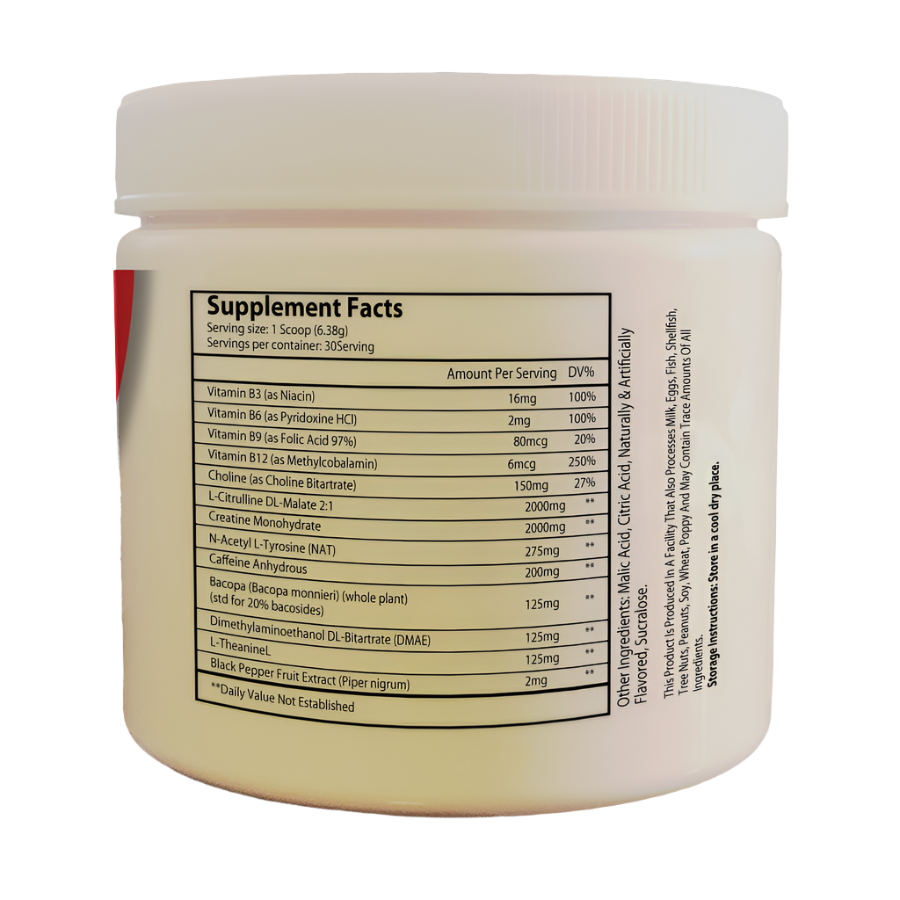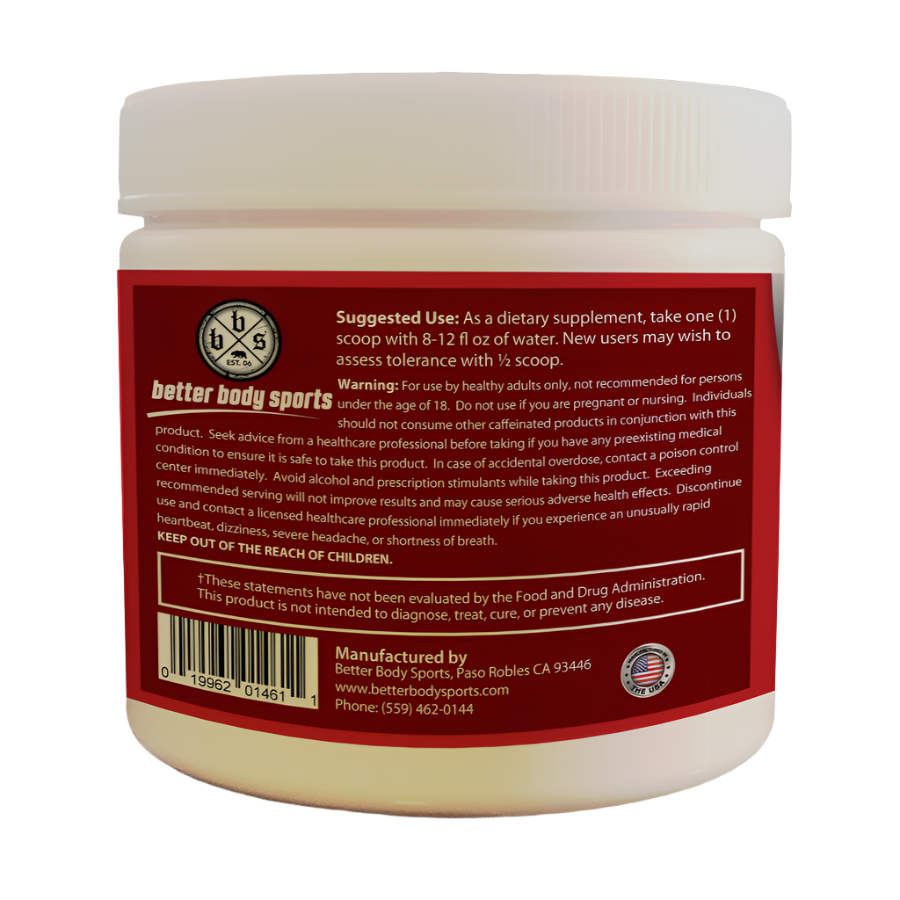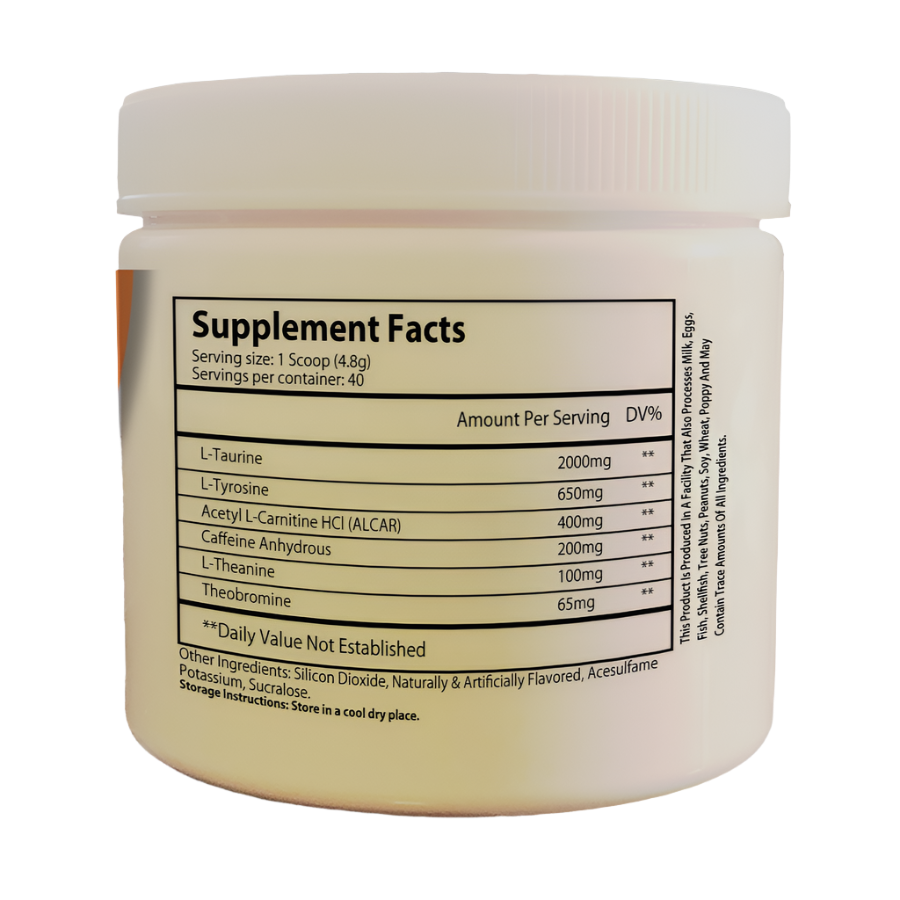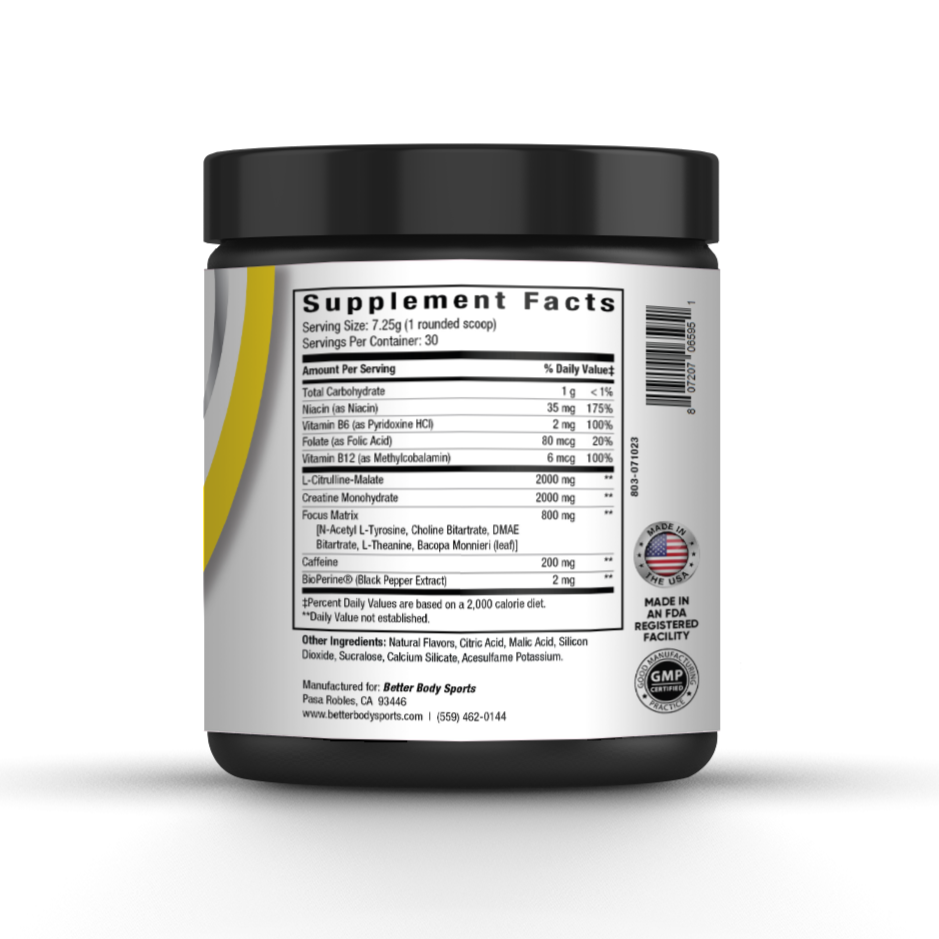
Weight Management For Women: How To Keep Fat Off For Good
Share
Let’s face it, losing weight is harder for women than it is for men. But it isn’t only weight loss that requires more work and discipline, weight management also comes with similar challenges.
Here’s some good news. As a woman, there are specific ways to prevent weight gain without adding more to your plate. In this article, we teach you how to make weight management a more enjoyable process. We identify the easy to incorporate strategies women use to keep body weight from fluctuating all over the place.
We also provide a realistic understanding of when you can expect the scale to temporarily change in the wrong direction. Finally, we provide you with simple actions you can take to keep weight off for good.
Weight Management VS Weight Loss For Women
Before we get started, let’s clarify the difference between weight management and weight loss for women. A weight loss program should always include the healthy lifestyle principles that we find in weight management. Weight loss differs by consuming fewer calories and performing more intensive physical activity.
There’s also a mindset shift when a woman is trying to lose weight. The term “healthy eating“ takes on a different meaning when calories are the primary concern. Sometimes this becomes unhealthy when women make less healthy food choices in exchange for fewer carbs and fats.
This is a mistake. In a weight loss program, it is even more important to focus on micronutrient food quality since we get less total calories in a day.
It’s a good thing that women make weight management more of a lifestyle rather than a temporary weight loss goal. Having the weight management mindset keeps you less stressed, but women sometimes gain weight when there are no limitations on their calorie intake.
The Weight Management Mistake
There’s an underlying danger to passively focusing on weight management. It’s bad enough that as we age, our bodies lose muscle. But what’s worse is when our nutritional intake causes muscle weight to decrease and body fat to increase.
The slow shift that occurs when following the right calorie intake but the wrong macronutrient ratio can leave us saying “what happened.” The scale appears the same, but our bodies look significantly different. If you’ve determined that you’re ready to keep a healthy weight, don’t forget the importance of eating a balance of lean protein, healthy fats, and complex carbohydrates*.
*Unless you are on a ketogenic diet.

Setting A Weight Management Goal
The first step to a successful weight management plan is establishing the goal of keeping a healthy weight and being intentional about it. While a lifestyle change makes weight management easier, it’s pursuing the goal that makes it permanent.
There’s a saying that goes, “if we’re not going forward, then we are moving backwards.” This is exactly what happens to women who stop focusing on fat loss yet disregard setting a goal of maintaining their healthy body fat levels. Successful weight loss programs are not that much different from successful weight management programs. You create the goal, then work towards it with an action plan, and keep going until you achieve the indefinite goal.
In this case, it’s until we move on from this world.
Scheduling Breaks To Your Weight Management Program
You’ve probably heard of a cheat meal or cheat day. Most diet plans allow for temporary breaks throughout the weight loss journey where you enjoy your favorite pizza and cookie or perhaps load up on refined carbs. If it’s ok to follow this type of scheduled break during a weight loss plan, then why not during a weight management plan?
Nutrition coaches understand that healthy weight loss requires a healthy mindset. These breaks are necessary to keep you in a positive state for any long term goal.
Most do not consider the importance of these scheduled breaks from restrictive eating when trying to prevent weight gain. Unfortunately, there seems to be a paranoia that a single misstep causes weight to increase permanently. Or, frequent poor food choices cause weight gain to go unnoticed until clothes no longer fit.
There are differing approaches to maintaining a healthy weight. Some people choose to pay less attention to calories and instead focus on a nutritionally rich, healthy diet. Some people check their scale daily and drop the sweets when the scale moves upwards. Others keep a healthy calorie-controlled diet throughout the week but loosen up on the weekends.
Your choice will be personal, but whatever you choose, stick to it. Bouncing back and forth with no genuine commitment is both stressful and unproductive. Create the scheduled breaks that work for you and keep at it.
Physical Activity For Weight Management
Weight training helps prevent body composition changes from moving in the wrong direction. When you have more lean mass, you have less insulin resistance, making it harder to store glucose from carbohydrate consumption. So if you’re the type of person who fears weight regain, then you need to strength train!
Did you catch that rhyme? Make that your mantra.
This is counterintuitive to the idea people have about physical exercise. They assume weight training leads to weight gain, but the reality is building muscle mass is a slow process. If we’re starting this journey in our 30s or older, then it’s an even slower process.
If the scale goes up a few pounds because of strength training and it’s muscle, that’s a good thing! Don’t let the scale become an obsession preventing you from positively changing your body. This is not only one of the most important weight loss tips, but it also applies to weight management.

Physical activity with weighted resistance has many benefits for our body. We should never put these aside for a short term drop on the scale.
Nutrition For Weight Management
Perhaps the most important aspect of weight management is finding the right nutrition plan to follow. Here, we use the term “plan” loosely. A nutrition plan can be extremely strict or it can allow for a lot of freedom. In fact, even stating that you are going to eat whatever you want, whenever you want it, is technically a nutrition plan.
Nutrition is where you have the greatest ability to choose.
You might be stuck in a sedentary full time job.
Maybe you are limited to indoor workouts because of your climate.
Perhaps your commitments restrict you to short workouts
These are all realities of life, but nutrition is much more… your choice.
Sure, some people may have to prepare meals in advance rather than in real time. Either way, we can decide what we are putting into our mouths. Because we have the greatest ability to choose, this is our focus for the rest of this article.
That One Week Where It’s Harder To Make A Good Choice
While those already through menopause can relate to this section, those who haven’t yet got through menopause can benefit. When you have a menstrual cycle, fitness goals become harder to maintain. This is especially true for weight management, where you are adapting to a long-term lifestyle modification. When you feel “crummy”during this difficult period, it’s much easier to run to high calorie processed foods for a bit of pleasure.
Here are a few tips to prevent long term weight gain because of poor nutrition during a menstrual cycle.
Embrace the Cravings
Your body is craving different foods for a genuine reason. When you lose blood, you lose important vitamins and minerals. Many women experience a desire for chocolate during their cycle, and this occurs for several reasons. The first is that chocolate contains phytonutrients that release feel good hormones. Just as important, chocolate contains minerals such as magnesium, copper, and manganese.

Chocolate doesn’t have to be unhealthy. Instead of running to chocolate ice cream or a chocolate candy bar, choose dark chocolates and those that have natural sweeteners like stevia and monk fruit. These will give your body the good that it needs while leaving the bad behind.
This is true for other foods as well. Your body is craving foods for a reason, so find the ones that are healthier options and that will satisfy your body’s desire.
Physical Activity With Accountability & Rewards
Perhaps you can work out solo during the three weeks when you are free from this burden, but when this week shows up, the couch becomes your best friend. Unfortunately, this makes the problem worse, since they have shown physical activity to help ease the symptoms of menstrual cycles.
Having an accountability partner or partners helps you show up, whether you want to. This is especially true when your accountability partner is a part of a larger group, such as you find in an exercise class. Think about the things you do during this tough week that you do because well..it has to be done.
On the other side of roughing it out, is giving yourself a reward for the hard you just put in. Schedule your massage, facial, pedicure, and other luxuries for this week. Make it a reward for getting your body off the couch and into the gym.
Keep Busy But Not Burdened
Schedule a lot of low energy activities for the week. When your schedule is empty, your mind will wander into a dangerous place. When scheduling hard stuff, your mind will look for something to make it feel better from exhaustion and glucose deprivation.
Let’s be honest, this isn’t always practical, but it is possible to make positive improvements. Do what you can and consider every positive change a tremendous success.
Be Parasympathetic With Your Workouts
With workouts, sympathetic does not mean having sympathy for your exercise. A sympathetic workout is one that stimulates your sympathetic nervous system or otherwise known as your fight-or-flight system. Since your menstrual cycle may cause your sympathetic nervous system to heighten, it’s a good idea to perform exercises that are parasympathetic.
Consider exercises such as yoga, pilates, and steady state cardio during your menstrual cycle. There are certain women who feel better from high intensity exercise, but many will not.
15 Weight Management Tips For Women
Who’s ready for some actionable and simple things you can do to keep your weight under control? A few of these you may be already thinking about, some of these you may have forgotten, and others you have never heard before.
- Avoid eating processed foods as much as possible: This isn’t just true during your menstrual cycle, it is true all the time. Eating processed foods creates a habit where your body loses its desire (never completely) for low-nutrient foods and instead craves overly salty and fatty foods.
- Drink plenty of water and avoid sugary drinks: You’ve seen the water bottles all over TikTok but let’s be honest, drinking water gets harder throughout the day. Instead, drink water early and often, then in the afternoon, look for low sugar and low calorie drinks that will better satisfy your sweet tooth.
- Exercise regularly: This doesn’t just mean daily, it means multiple times during the day. The trick is redefining what exercise means. Pick up a few healthy habits that are considered being low impact exercise. Gardening, organizing, cleaning, walking the dog. These are all examples of exercise.
- Make sure you’re getting enough protein and fiber in your diet: Protein and fiber are the two most satiating (meaning hunger reducing) foods. They will help keep you feeling fuller, longer. The best meal you can have for fullness is a lean meat salad that includes healthy fats in the dressing.
- Avoid eating late at night: This isn’t because you will get fat when you eat before bed. That’s just not how our metabolism and digestive systems work. It’s because it reduces your sleep quality, which causes you to have more hunger the following day.
- Find exercise you enjoy and stick with it: Don’t look for the perfect, most effective workout program. Instead, find a workout that you really enjoy doing. The one caveat we ask is that it includes some type of heavy weight training. This can be with your bodyweight, a barbell, kettlebell, or any other tool that provides resistance.
- Get adequate sleep: We touched on this already but most women need around 7-8 hours per night. Don’t shortchange yourself because you think that you have too much to do in a day. Eliminate the unnecessary and prioritize your sleep. You need it for hormone production, reducing hunger, and recovering from workouts.
- Don’t stress about your weight or body image: This tip deserves several spots on this list, it’s that important. By stressing out about how you look in the mirror or the weight going up by a pound, you are going to do yourself more damage than good. What good will stress do? Nothing. I mean seriously, it’s in the Bible, so it must be true.
- Avoid Eating Off The Menu: Did you know you can ask for a meal at a restaurant rather than choosing from the menu? The menu can be a great place to get an idea of what to eat, but customize the meal based on the ingredients you see.
- Make sure you’re getting enough vitamins and minerals: Micronutrient deficiency is a big deal and creates a lot of issues, one of which is weight gain. Prioritize whole food but consider using a multivitamin supplement as a security blanket that ensures you cover vitamins and minerals for the day.
- Do not go on a Yo-Yo diet: Periods of feast and famine can be good for us. However, when our emotions are not in control throughout this process, it can be extremely damaging to our health. If you are going to follow a diet such as intermittent fasting, make sure that it’s structured and you understand the process.
- Keep a journal: Food journal, workout log, and diary. Just do it. Writing the foods you eat makes it real and less forgettable. We keep 30% more information when our pen hits the paper, so document your food intake, workouts, and your feelings. It will have an enormous improvement in your health and fitness.
- Get in more steps: One of the best ways to keep your weight under control is to walk more. Whether it’s parking farther away, scheduling hikes, or choosing more inconvenient means of travel, we need to get our feet moving.
Weight Management Supplements
We’ve written a comprehensive article about weight management supplements that covers the ins and outs of various supplements. What we need to discuss in this article is the relationship between fat burners and appetite. Some fat burners will increase your appetite, causing you to crave more foods. This defeats the purpose if we end up eating more calories than we should.
Finding the right weight management supplement that gently stimulates fat burning without making you hungry is what we need. That’s exactly what we have created with BodyForm.
BodyForm Weight Management Supplement
Bodyform is a weight management powder formulated with amino acids and herbs to stimulate your metabolism and burn fat. Bodyform includes Theobromine, which is one of the key ingredients found in chocolate that stimulates the feel-good neurotransmitters.
Thousands of customers use Bodyform to help them keep control of their weight and get more done in a day. The great tasting flavors make it that much better. Try BodyForm to see for yourself why it has become a staple part of many people’s healthy fitness lifestyle.











